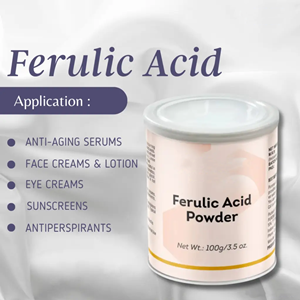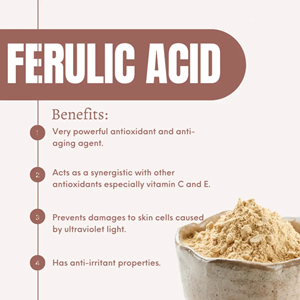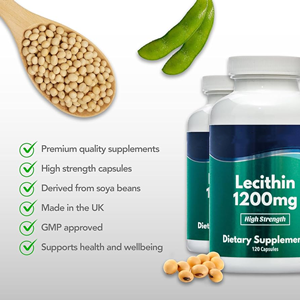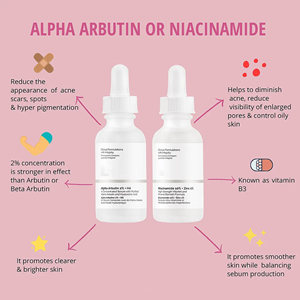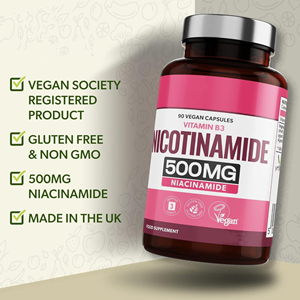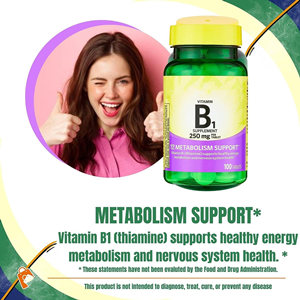Is Vitamin B3 The Same As Nicotinamide?
Vitamin B3 Powder, also known as niacin, is an essential nutrient that plays a crucial role in maintaining overall health. It is a water-soluble vitamin that is involved in various physiological processes, including energy production, DNA repair, and cell signaling. However, there is often confusion surrounding the different forms of vitamin B3, particularly the relationship between vitamin B3 and nicotinamide. In this blog, we will delve into the intricacies of these compounds and explore whether they are indeed the same.
Understanding Vitamin B3
Vitamin B3 encompasses two main forms: niacin (nicotinic acid) and nicotinamide (niacinamide). Both forms are essential for the body, but they have distinct chemical structures and functions. Niacin is found in various food sources, such as meat, fish, and nuts, and can also be synthesized in the body from the amino acid tryptophan. On the other hand, nicotinamide is derived from niacin and is also present in certain foods.
The Source of Vitamin B3
Animal Sources:
Meat (such as beef, pork, and chicken)
Fish (such as tuna, salmon, and sardines)
Organ meats (such as liver and kidney)
Poultry (such as turkey and chicken breast)
Plant Sources:
Legumes (such as lentils, beans, and peas)
Nuts and seeds (such as peanuts, sunflower seeds, and almonds)
Whole grains (such as wheat, barley, and corn)
Mushrooms
Green leafy vegetables (such as spinach and kale)
Avocado
Niacin and Health Benefits
Niacin is well-known for its role in promoting cardiovascular health. It helps to lower levels of LDL (bad) cholesterol and triglycerides while increasing HDL (good) cholesterol, thereby reducing the risk of heart disease. Additionally, niacin is involved in the metabolism of carbohydrates, fats, and proteins, contributing to overall energy production in the body. It also plays a vital role in maintaining the integrity of the skin, digestive system, and nervous system.
Nicotinamide and Its Functions
Nicotinamide, also referred to as niacinamide, is a form of vitamin B3 that is essential for the synthesis of nicotinamide adenine dinucleotide (NAD+) and nicotinamide adenine dinucleotide phosphate (NADP+). These coenzymes are involved in numerous metabolic pathways, including energy production, DNA repair, and cell signaling. Nicotinamide is also recognized for its potential skin benefits, as it is often used in skincare products for its anti-inflammatory and antioxidant properties.
Are Vitamin B3 and Nicotinamide the Same?
While both niacin and nicotinamide are forms of vitamin B3, they are not identical compounds. Niacin is converted into nicotinamide in the body through a process known as amidation. This means that nicotinamide is a derivative of niacin, and both forms have distinct roles and functions within the body. Niacin is primarily associated with cardiovascular health and energy metabolism, while nicotinamide is more closely linked to cellular processes and skin health.
The Importance of Adequate Vitamin B3 Intake
Regardless of the specific form, ensuring an adequate intake of vitamin B3 is essential for overall health and well-being. A deficiency in vitamin B3 can lead to a condition known as pellagra, characterized by symptoms such as dermatitis, diarrhea, and dementia. Therefore, consuming a balanced diet that includes niacin-rich foods, such as poultry, fish, and whole grains, can help prevent vitamin B3 deficiency.
Supplementation and Considerations
In some cases, individuals may require supplementation with vitamin B3 to address specific health concerns or deficiencies. Niacin supplements are available in various forms, including immediate-release, sustained-release, and extended-release formulations. It is important to consult with a healthcare professional before initiating niacin supplementation, as high doses of niacin can cause side effects such as flushing, itching, and liver toxicity.
Nicotinamide supplements are also widely available and are generally well-tolerated. They are often used for skin conditions, such as acne and rosacea, as well as for their potential anti-aging effects. However, as with any supplement, it is advisable to seek guidance from a healthcare provider to determine the appropriate dosage and suitability for individual needs.
In conclusion
While vitamin B3 and nicotinamide are related, they are not interchangeable. Both forms play distinct roles in supporting various physiological functions, and their contributions to overall health should not be overlooked. By understanding the differences between niacin and nicotinamide, individuals can make informed choices about their dietary intake and potential supplementation, ultimately optimizing their well-being.
Xi'an ZB Biotech Co.,Ltd is vitamin B3 Factory, we can provide vitamin B3 Capsules or vitamin B3 Tablets. Our factory also can supply OEM/ODM One-stop service, including cuatomized packaging and labels. If you want to learn more, you can send e-mail to Rebecca@tgybio.com or WhatsAPP +8618802942783.
In summary, vitamin B3 encompasses two main forms: niacin and nicotinamide. While both forms are essential for overall health, they have distinct roles and functions within the body. Niacin is primarily associated with cardiovascular health and energy metabolism, while nicotinamide is involved in cellular processes and skin health. It is important to ensure an adequate intake of vitamin B3 through a balanced diet and, if necessary, consider supplementation under the guidance of a healthcare professional. By unraveling the mystery surrounding vitamin B3 and nicotinamide, individuals can make informed choices to support their well-being.
Reference:
National Institutes of Health Office of Dietary Supplements. (2022). Niacin - Fact Sheet for Health Professionals. Retrieved from https://ods.od.nih.gov/factsheets/Niacin-HealthProfessional/
Elstnerova, M., & Vavrova, L. (2014). Nicotinamide—Mechanism of action and its role in prevention and treatment of skin cancer. Casopis lekaru ceskych, 153(11), 545–549.
Schutgens, R. B., Van Wijk, E. P., & Van Wijk, R. (2016). Two cases of vitamin B3 deficiency presenting as cystic acne. Case Reports in Dermatology, 8(3), 265–271. doi:10.1159/000448893
Jacobson, M. K., & Jacobson, E. L. (1996). Vitamin B3 in Health and Disease: Toward the Second Century of Discovery. Methods in enzymology, 280, 722–738. doi:10.1016/S0076-6879(96)80071-4










